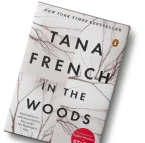
Writing fiction is like planting a garden. Each line you write is a seed. With the right care, sunlight, soil, and water, it grows into a beautiful story. But without guidance, even good ideas can end up weedy or weak. Whether you’re writing your first short story or editing the third draft of a novel, these fiction writing tips are designed to help your writing flourish.
In this guide, you’ll find proven fiction writing techniques, expert advice, and some fresh perspectives to take you further. We answer common questions, clear up writing myths, and aim to leave you inspired—and equipped—to write with clarity, flair, and confidence.
1. Show, Don’t Tell: Invite Readers into Your Story
What it sounds like when you tell:
“Sara was very sad.”
What showing looks like:
“Sara’s breath caught in her throat. Her hands trembled as she reached for the photograph.”
Telling is efficient. It conveys emotion plainly. But showing creates immersion. It lets readers feel what Sara feels. It turns moments into experiences, not just descriptions.
Try this technique:
- Think in terms of senses—what the character sees, hears, touches, smells, tastes.
- Use action and dialogue to reveal emotions indirectly.
- Balance “showing” and “telling”: not every moment needs vivid description, but key scenes often do.
Have a Fiction Idea? We’ll Help You Write It
From plot structuring to rich character arcs, our fiction ghostwriters bring your story to life.
Start Writing Your Novel2. Craft Characters Who Feel Real
Flat characters are forgettable. Fiction thrives on complexity. Here’s how to make your characters three-dimensional:
Give Them Deep Wants
Every character should want something—love, revenge, freedom. What they want drives the story. Even minor characters should have motivations, especially in key scenes.
Create Backstory & Flaws
Perfect characters are dull. Give them quirks, insecurities, secrets, or contradictions. Perhaps they’re brave—in public—but anxious when alone. These details enrich your characters and make them believable.
Let Them Change
Static characters are stagnant. Readers love transformation—physical, emotional, or moral. A shy person who becomes brave, or someone who learns from their mistakes, makes for compelling storytelling.
3. Make Dialogue Work Hard
Dialogue carries voice, emotion, and subtext. To write dialogue that crackles:
- Give each character a unique voice (short sentences vs. long, direct vs. roundabout).
- Skip filler—real life is full of “um,” but fiction shouldn’t be.
- Make it purposeful: every line should advance the story or reveal something new.
- Use subtext: sometimes what’s left unsaid means more.
- Read it aloud—does it sound natural? Does it flow?
4. Structure & Pace Your Story
A gripping story moves. Here’s how to keep your writing flowing:
Hook Your Reader Early
Start with a compelling image, action, or question. It doesn’t have to be explosive, but it should raise stakes from page one.
Build Tension
Arrange scenes so stakes escalate. Each chapter should push the story forward, even if it’s just deepening emotion or revealing a secret.
Vary the Beat
Balance fast and slow. High-energy scenes are thrilling, but juicy character moments or quiet scenes let readers catch their breath and connect.
Land on a Strong Climax
The climax needs emotional payoff. It should answer the big question you posed at the start—did the character succeed or fail?
Bring It Home
Your ending should feel satisfying—even if it’s open-ended. Resolve the key threads so readers don’t feel left hanging.
5. Keep Prose Sharp & Focused
There’s a difference between saying something and saying it well.
Use Strong, Specific Language
Replace weak words like “went quickly” with vivid verbs like “rushed” or “hurried.” Instead of “the big dog,” use “the Great Dane.” Details help readers visualize the world.
Avoid Overwriting
Skip cliches, unnecessary adverbs, and purple prose. Simple is often stronger: “She frowned” is better than “A deep furrow appeared between her brows, carved by the weight of her sorrow.”
Edit Ruthlessly
Trim every unnecessary phrase. If a description or dialogue doesn’t add to mood, character, or plot, cut it.
Get Your Fiction Novel Published Globally
We handle formatting, ISBN, print setup, and listing your book on Amazon, Flipkart & more.
Publish Your Fiction Book6. Develop a Strong Voice & Point of View
Your voice is your story’s personality. Here’s how to make it memorable:
Choose the Right POV
First person keeps the narrative personal and intimate. Third person limited gives a wider perspective while staying close to a character. Avoid mixing POVs in one scene (called “head-hopping”)—it confuses readers.
Keep POV Consistent
Stay inside your chosen character’s emotional and sensory experience. Don’t let them absorb details they wouldn’t logically notice.
Sound Like a Human
Don’t mimic other writers’ voices. Let your unique quirks shine. If you’re funny, embrace humor. If you’re poetic, trust your instincts.
7. Make Writing a Persistent Habit
Great writing comes from consistent effort. Here’s how to build the habit:
- Set realistic goals: aim for 300–500 words a day, or 30 minutes daily.
- Create a routine: same time, same place. Even if it’s just two paragraphs, you’re building momentum.
- Use helpful tools: methods like Pomodoro (writing in blocks with breaks) can improve focus.
- Record what sticks: if inspiration hits, jot it down. You can shape it later.
8. Research with Purpose
Even fiction needs a foundation in truth.
- Set authentic settings: If you write about cooks in New Orleans or engineers in Tokyo, listen to people who live those roles.
- Avoid info-dumps: Weave facts in naturally—through action, sensory detail, or dialogue.
- Preserve your voice: You’re not writing a textbook. Keep details clear and engaging.
When done right, readers feel immersed without pausing to Google.
Polish Your Fiction Manuscript to Perfection
Our editors refine plot holes, character arcs, pacing, and grammar for a flawless reading experience.
Edit Your Novel9. Avoid Common Mistakes
Here are pitfalls new writers often fall into—and how to sidestep them:
| Problem | Fix |
|---|---|
| Passive voice | Prefer active verbs (“He kicked the door”) |
| Cliches and overused metaphors | Spray with fresh, unexpected comparisons |
| Lack of conflict | Ask: What is the character preventing me from getting? |
| Too much telling | Add sensory details to show emotion and reaction |
| Overloading dialogue with exposition | Use dialogue sparingly; add context through action/story |
| Inconsistent tones or pacing | Rework slow or rushed sections; maintain consistent energy |
10. Embrace Revision and Feedback
Writing is rewriting. Here are the best fiction writing tips for revisions:
- Big-picture edit: focus on story arc, pacing, character consistency.
- Prose polish: refine sentences, word choice, tone.
- Line edits: tighten dialogue and description.
- Proofread: fix typos, formatting, grammar.
Seek feedback wisely:
- Join a critique group or beta readers. Choose people who read your genre and can give thoughtful input.
- Test small changes. Don’t throw everything out after one comment.
- Stay open, not defensive. Remember: feedback is about the work, not you.
If detailed feedback feels overwhelming, a developmental editor like those at Estorytellers can help. They focus on structure and voice—leaving you free to revise creatively.
11. Use Creativity Boosters
Struggling with a section? Try these fiction writing tips to spark creativity:
- Rewrite from a different POV: A scene narrated by your minor character might spark new ideas.
- Write flash scenes or shorts outside your main story: Focus on a memory, a moment. You might discover a detail you missed.
- Outline backward: Start from how you want the story to end, then fill in the steps in reverse.
- Listen to music that matches your scene’s mood while writing.
These exercises can inject fresh energy into stuck moments.
12. Read Widely and Learn by Example
Nothing teaches like reading what works.
- Read outside your genre. Literary fiction can teach beautiful language; thrillers teach pacing.
- Ask: Why did that ending hit hard? How did that author build tension?
- Study the techniques—then adapt them to your voice.
Find books that excite you. Dissect them. Let them inspire your own work.
Bonus Tip: Tap into Community
Writing can feel lonely, but doesn’t have to be.
- Join local writing groups, attend workshops or online meetups.
- Share drafts, ask questions, exchange encouragement.
- Celebrate small wins together. Off days? You’ll find support.
And if you need personalized feedback, Estorytellers offers mentorship-style editing, honest and compassionate.
Turn Your Fiction Book Into a Bestseller
From Amazon SEO to media outreach, we market your novel to the right audience and boost visibility.
Market Your BookFinal Thoughts
Fiction writing is a lifelong craft. You grow through practice, reading, feedback, and fearless revisions. And remember: your unique voice, your choices in words, images, and emotions, is valuable and original.
So plant your “writing seeds.” Nurture them daily. Shape your draft with care. And when it’s time to refine, let that story shine with clear eyes and a brave heart.
If you’d like help with structure, pacing, or discovering your voice, Estorytellers can be the partner you need, offering expert guidance and a human touch as you polish your story.
Keep writing. You already know more than you did yesterday. Your next draft is closer than you think, and it’s full of possibilities.






























